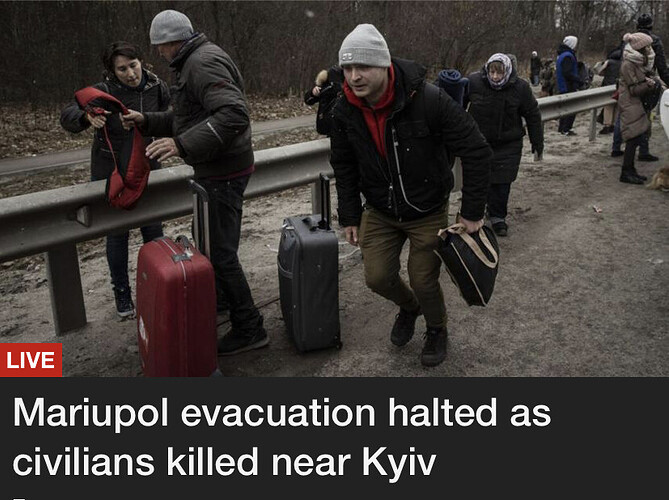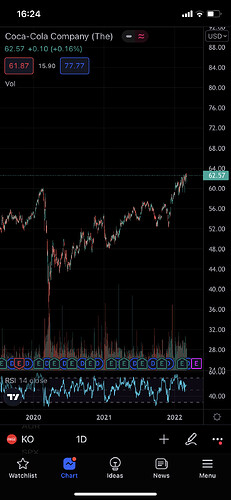@dooknukem looks like those LMT calls will continue to pay come Monday.
Chinese official reports winter wheat harvest ‘worst in history’
China’s agriculture minister reported over the weekend that the recent winter wheat harvest could be the “worst in history,” providing further justification to buy from Russia.
Minister of Agriculture and Rural Affairs Tang Renjian said rare heavy rainfall last year delayed the planting of about one-third the normal wheat supply, leading to a roughly 20% shortage in crop yield.
The war between Russia and Ukraine, which together produce roughly 29% of global wheat exports, had already pushed wheat prices to an incredible 14-year high.
The shortage could create food security issues for China, driving it to buy wheat from Russia. The two countries worked out a deal on Feb. 24 that allowed China to import wheat from all regions of Russia, which could provide Russia with greater funds for its war and further relief from devastating sanctions on its economy.
Russia attacks Vinnytsia airport with 8 cruise missiles
Ukrainian President Volodymyr Zelenskyy and Foreign Affairs Minister Dmytro Kuleba reported Sunday that Russian forces attacked a civilian airport with eight cruise missiles.
“Against our city, against our peaceful Vinnytsia which never posed a threat to Russia in any way,” Zelenskyy said in a video posted on Twitter. “A brutal, cynical missile strike has completely destroyed the airport.”
Kuleba labelled the attack as “barbaric,” and both officials renewed their calls for a no-fly zone over Ukraine.
The Russian Embassy in Israel pushed back on the reports by writing that the airport is “dual-purpose” and serves as a base of operations for the aviation brigade of the Ukrainian Armed Forces.
Russia’s credit rating cut again, close to default
Rating agency Moody’s delivered another body-blow to Russia as it set the nation’s credit rating at its second-lowest rung, putting the country in danger of default.
Moody’s said its decision to cut Russia’s rating was “driven by severe concerns around Russia’s willingness and ability to pay its debt obligations”.
Russia has kept its stock market closed over fears of a sell-off, which would crater the already vulnerable economy. The ruble dropped over 20% in the past week, with $1 equal to 124 RUR. Prior to Russia’s invasion, $1 was equal to 83.53 RUR.
VTB Bank Prepares to Exit Europe, FT Reports
Russia’s VTB Bank is preparing to wind down its European operations after being hit hard by sanctions, the Financial Times reported, citing people with knowledge of the internal discussions. VTB declined to comment to the newspaper.
“We’re trying to do it as swiftly as we can - but operations in Europe are much more complicated than those in the U.K.,” the FT reported a person involved in the planning as saying. “We’re doing everything we can to get customers’ money back to them.”
Sberbank, Russia’s biggest lender, decided to exit the European market last week. Together, Sberbank and VTB account for more than half of Russia’s banking market.
Blinken Says U.S., Europe Discussing Russia Oil Ban
The U.S. is in talks with European countries on a joint approach to any ban on Russian oil imports that could still ensure adequate supplies, said Secretary of State Antony Blinken.
Blinken, currently in Eastern Europe, said he discussed the matter with President Joe Biden and other cabinet members on Saturday.
“We are now talking to our European partners and allies to look in a coordinated way at the prospect of banning the import of Russian oil, while making sure that there is still an appropriate supply of oil on world markets,” Blinken said on CNN’s “State of the Union” on Sunday. “That’s a very active discussion as we speak.”
Russian Lender Looks for Workaround to Visa, Mastercard Ban
Russia’s biggest lender, Sberbank PJSC, said it’s looking at the possibility of issuing cards using the domestic payments system Mir and China’s UnionPay after credit card giants Visa Inc. and Mastercard Inc. suspended operations there.
The move could allow Russians to make some payments overseas, since state-owned UnionPay operates in 180 countries and regions. Visa and Mastercard said that any transactions initiated with their cards issued in Russia will no longer work outside the country from March 10.

